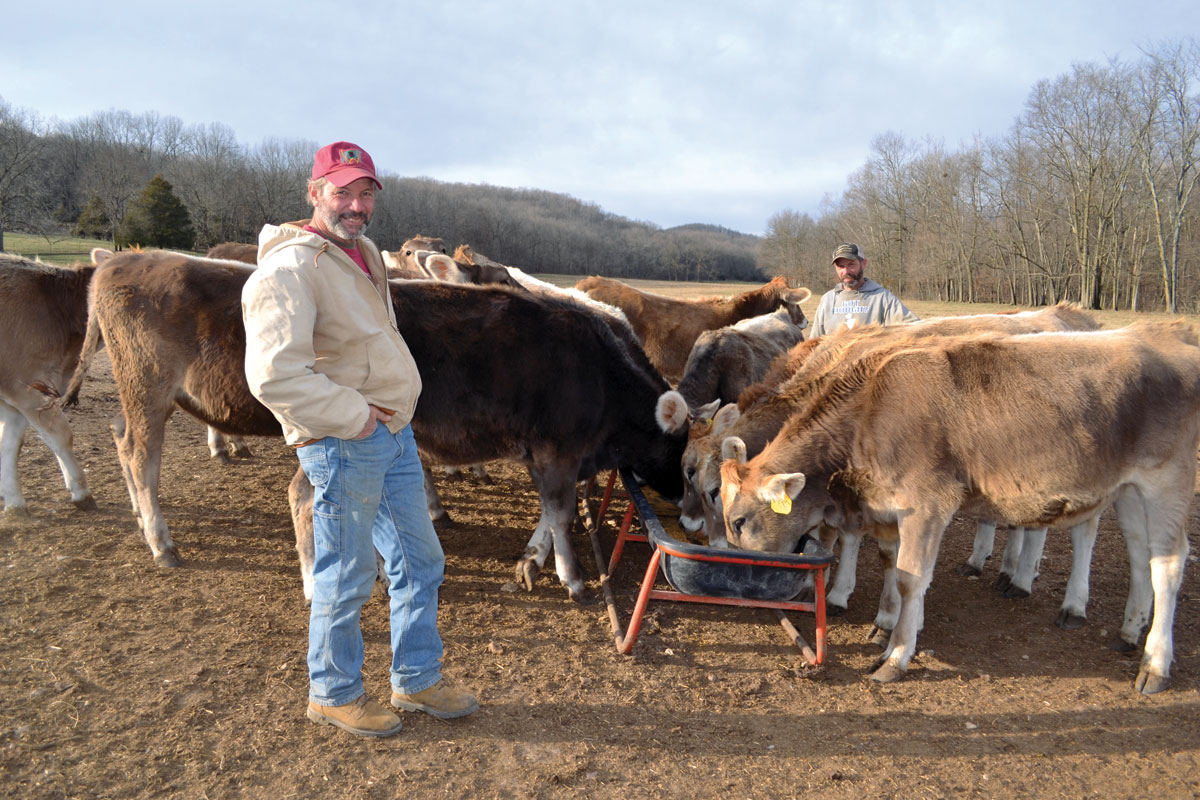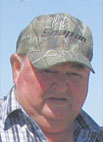
Brothers Ed and Walt Wittorff continually look for ways to improve their family’s dairy herd
Tucked away in the hills of rural Douglas County outside Ava, Mo., brothers Ed and Walt Wittorff along with their mother, Laura, run Wittspride Brown Swiss and Holstein Dairy Farm, in operation since 1974.
“That’s when my parents, Walt and Laura, moved here from Illinois with 16 cows and a few heifers, and started all this,” Ed Wittorff explained while taking a short break from his daily chores. Today, the farm has about 220 head of dairy cattle, milking 100 head daily on 250 acres.
“We grew up doing this,” he continued. “My brother and sister and I showed calves in 4-H when we were younger. Some of the progeny of those calves still runs through our herd so that is a legacy of sorts. I had an artificial breeding company here recently that is interested in buying a bull that goes back to one of my 4-H calves.”
Ed freely admitted he doesn’t have time to show cows today, but it would be a mistake to think that Wittspride’s somewhat rustic location makes them any less a contender in today’s modern dairy industry. While they may not be showing their livestock, it doesn’t mean others aren’t doing so.
A 5-year-old Brown Swiss cow originally from the Wittspride Brown Swiss and Holstein Dairy Farm line that was sold to a Texas dairy operation in 2015 was named a Brown Swiss All-American by the Brown Swiss Cattle Breeders Association in 2017. In addition, Wittspride boasts a surviving group of triplet heifers born on their farm in 2016, a rare accomplishment by any standard.
“Twins are not all that uncommon,” Ed added with a smile. “But triplet heifers where all three survive are a real rarity.”
Those three, now just over a year old, continue to romp about with many others their age on the farm.
Ed and Walt each have dairy science degrees from the University of Arkansas and appreciate the attributes of working with registered cattle. Their mother, Laura, despite her years, still helps to feed a few bottle calves from time to time.
“All of our cows are registered. It adds value to your cattle and certainly improves the marketing for genetics and showing,” Ed said. “It’s a little extra effort in terms of paperwork, but it takes the same amount of labor to milk a grade cow as a registered cow.
“My dad had a professor in college who believed that Brown Swiss were the most underrated breed of dairy cows in the country and would be the breed of the future. They have more butterfat and protein in the milk and they are more resilient, stronger and tougher than other breeds. By that I mean, they handle stress better than others and are more docile.”
Ed added that they are always looking to improve their herd.
“With the registered cattle, you are always setting new goals, looking toward improvement and the challenge of making and meeting those goals,” he said. “We do all our cows by AI; we don’t have a bull on the place. All our cows are from our own stock, with the exception of the purchase of an occasional heifer, and that provides a satisfaction you don’t get from just a paycheck.
“The people you meet in this business are also great, literally we have people come here from all over, even Switzerland to see our cows and our operation. And that makes for free advertising for our farm when our animals do well in shows and production when we sell them.”
Ed took a moment to study one of 14 barn cats that also call Wittspride Farm home, as the kitten attacked his boot laces.
“Animal agriculture has gotten a bad reputation on social media and that’s really sad because we care about our animals,” he said.
He spoke about a calf born on a freezing night in the mud this winter when they ended up with the veterinarian out in the dark wee hours, an IV strung from the ceiling and other measures taken to eventually save the calf.
A self-described perennial bachelor, Ed shared that at least one of his nephews has expressed some serious interest in the farming operation.
“With that, there is some hope for the next generation to continue in dairy farming,” Ed said with a laugh.
While Ed is hopeful for the next generation of his family to continue the Wittspride Farm tradition, he and Walt have some plans of their own.
“We have plans where improvements can be made, like building a compost barn, things we can do to keep the cows healthier, even more milk production,” Ed said. “We do everything on foot around here, no four wheelers or horses, just us with the animals.”
It means a lot more walking for Ed and Walt, but Ed said it’s important in more ways than one.
“I think it keeps the cows calmer and if you cannot enjoy being around your own animals, why have them? I milk cows because I enjoy working with my cows. There is not enough money in this for all the work you do, so you better love it.”






